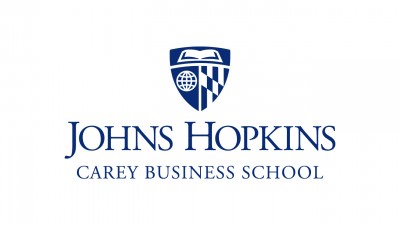Life After Carey: CityView Development VP Michael Schwartzman

In previous articles we have explored what makes the Edward St. John Real Estate Program of the Johns Hopkins Carey Business School unique, and we set out to get a firsthand perspective of why Carey alumni chose the program and how it helped them reach their current successes. We caught up with CityView Development VP Michael Schwartzman, a 1998 graduate who oversees new developments in California, from San Francisco to San Diego.
Upon graduating from the Tulane School of Architecture in 1989 and obtaining his architecture license, Michael started a design-build company that focused on high-end custom homes in Maryland, Virginia and DC. Michael tells Bisnow that he greatly enjoyed this work for about five years, until one day, one of the loan officers that had orchestrated the bank financing for one of his clients pointed out that his time would be better served in commercial development. Michael couldn’t have agreed more and started making moves.
“After meeting with a bunch of developers and various industry figures, I thought the path to get there was best accomplished by getting an MBA or a degree in real estate finance, which Hopkins offered,” Michael tells Bisnow.
Once at Carey, Michael was excited to be exposed to different aspects of the commercial real estate industry. Despite his construction background, he says, his favorite class was real estate finance with professor Sean Krantz. On the first night of classes, Michael says, Sean illustrated the benefit of learning real estate from industry professionals.
“It's not tenured faculty doing the same thing for 30 years teaching formulas or case studies from the 1970s or 1980s that don’t apply to anything we do today with the different technology,” Michael says. “Sean came in and told us that he runs a conduit finance CMBS group and orchestrated $400M worth of capital per quarter and a little over $1B a year. As soon as I heard that, I was hooked. I wanted to understand everything about public financing in real estate.”
In addition to working with professors who were leaders in their industries, Michael says he also got to network and work with fellow Carey students who had their own areas of expertise. He says these strong, long-lasting connections helped him grow his knowledge base, and, to this day, he still works with and helps out fellow Carey alumni.
“If somebody calls you with a question, you have to pick up the phone; you have to give them your time," Michael says. "Whether it’s explaining what rates and terms you’re using on a loan to help someone underwrite it and be more current or helping someone close a phenomenal deal, you can still make a difference. Everyone around you becomes like a deck of cards you can play with, and I'm still orchestrating things with my fellow classmates.”
Michael says that there’s “no doubt” that his Johns Hopkins experience changed his life, helping him evolve from a practicing architect, to working at a REIT, to a position as analyst at an investment bank, then working at a top-tier real estate development company. While he guesses that he could’ve made that jump without Carey, those companies “wouldn't have found the skills, attributes and capability necessary to do the work they needed done, if I didn't walk up that ladder that I found at Hopkins.”
The connections Michael made during his time at Carey certainly helped as well, as he explained that a close friend initially applied for a position at the Keampher Co and, when she didn’t take it and was asked who would be a good fit for the role, she recommended Michael, who received a job offer within hours.
Michael says he would ardently support anyone, regardless of their background, furthering his or her education at Carey. In fact, Michael appreciated his Carey experience so much that he began to teach design at Hopkins and was a faculty adviser for the Carey team at the NAIOP real estate competition, where his students won $10k competing against the likes of Georgetown and American University.
“All in all, Hopkins opened me up and really taught me to look at things differently,” he muses. “Education is always good. Once it goes into your brain, people can't take it away from you, so everybody should seek higher education to better themselves and keep expanding and participating in the education world. Hopkins offers you the chance to fill the holes in your understanding of different aspects of the business to make yourself a better real estate executive, and ultimately that's what you're trying to do.”
To learn more about our Bisnow partner, click here.

